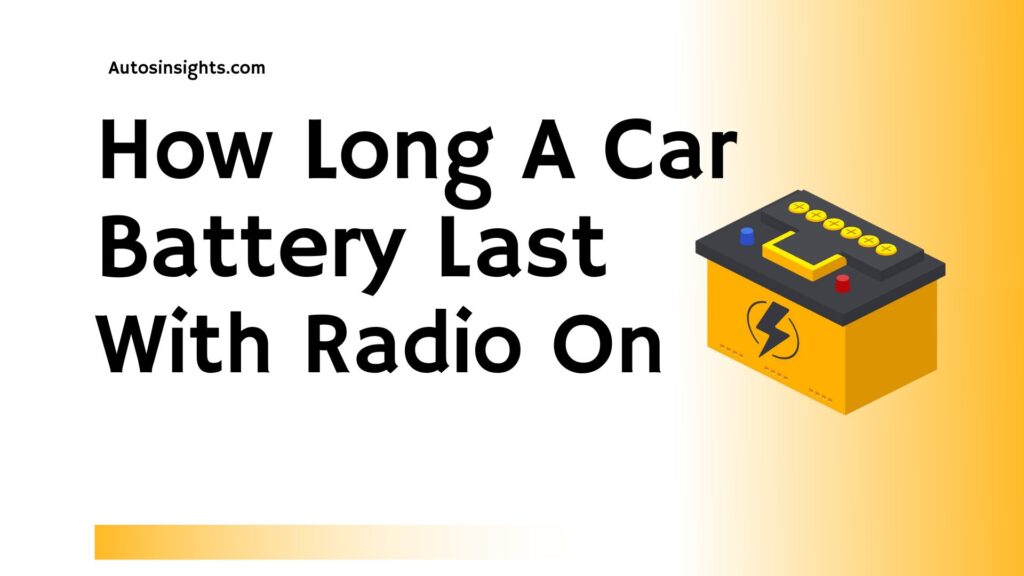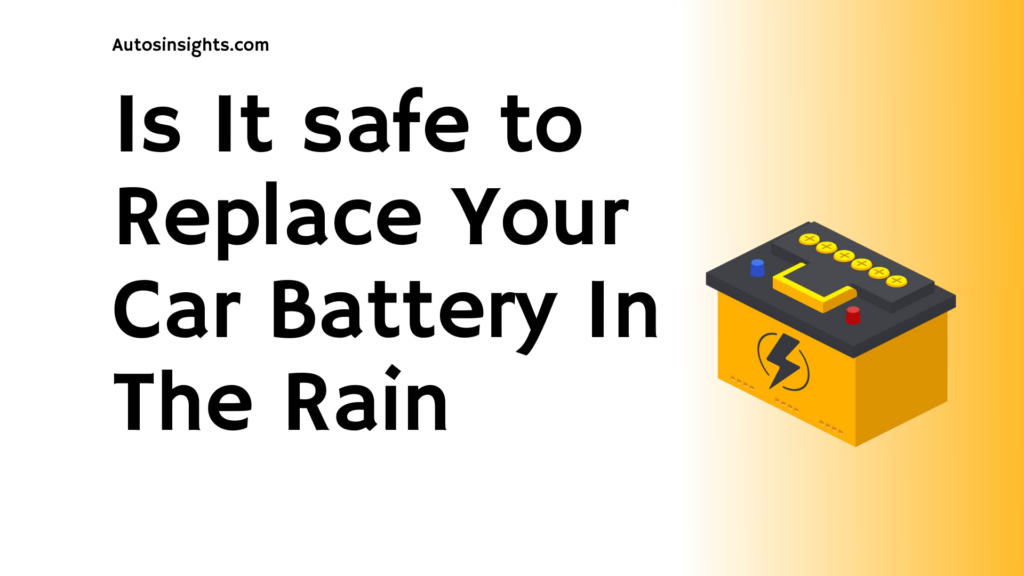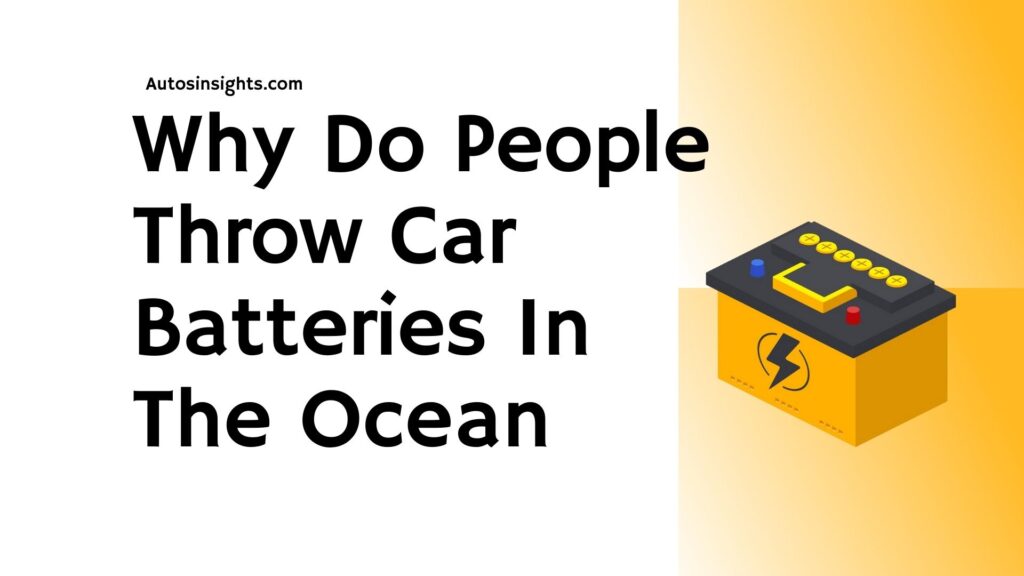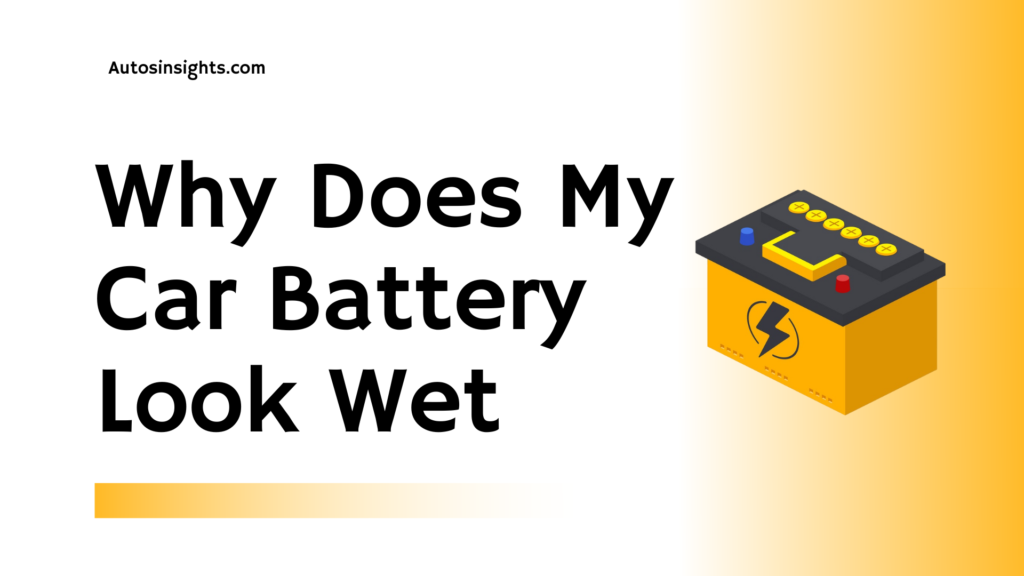You must know! how to remove corrosion from car battery!
Opened your car’s bonnet and saw rust around the battery connections. Please stay calm & don’t worry. Batteries can corrode when they get worn down from being used often. Corroded battery connections are a typical reason why car batteries don’t last as long and why there are electrical problems.
Here We’ll talk about usual worries, like detecting that it is time to change the car battery because it has rust. Keep scrolling to learn more ways, including Coke, baking soda, and many other interesting hacks that don’t include using baking soda.
Car battery corrosion cleaning is a simple process. You can use a car battery corrosion cleaner available in the market. You can also use baking soda and water as car battery terminal cleaner .
I will share my experience on how to clean battery corrosion of car. You will also understand what causes car battery corrosion. What steps you should take to prevent battery corrosion.
How To Clean Car Battery Corrosion In 2024
Disconnecting the negative terminal is the first step because while cleaning the car battery corrosion, you must ensure your safety first. Later Mix baking soda with water to create a paste and scrub it into the corroded areas. Baking soda helps because it is an alkaline substance that can neutralize the acidic nature of battery corrosion. After scrubbing, rinse the connections with water and dry them before connecting again.
How to Clean Car Battery Corrosion without Removing?
You can get rid of rust in the following ways so you don’t have to take the battery out of the car:
- Use safety gear at first, like gloves and glasses.
- First, disconnect the negative (-) wire from the battery.
- To make a paste, mix baking soda and water in equal amounts.
- Before spreading the baking soda paste, gently scrape the rusty spots with a brush or an old toothbrush.
- Rinse the terminals well with clear water to remove any baking soda residue.
- After ensuring the connections are completely dry, connect the negative (-) battery line.
Does corrosion on a Car Battery Mean It Needs to be Replaced?
When a car battery has corrosion, it doesn’t always mean it needs to be changed. Corrosion is often caused by things in the environment or by spills of acid. Refusing corrosion and checking the links can make batteries last longer and work better. But if the rust is bad or the battery is very old and no longer holds a charge, its the time to change the battery, my dear. If you need to figure out how good the battery is, seeing a professional is best.
How to Clean Car Battery Corrosion with Baking Soda?
The use of Baking soda is good for getting rid of corrosion on car batteries:
- Take the wires off the battery and add baking soda and water in equal amounts.
- Corrosion should be gone after adding the mixture to the damaged areas and waiting a few minutes.
- A brush or a toothbrush to rub around the connections to remove the corrosion is a great idea.
- Please ensure the connections are completely dry after rinsing them with water.
- Please ensure the wires to the battery are firmly attached and reconnected.
Most of the time, sulfuric acid that leaks from a car battery causes the connections to rust. Baking soda, also called sodium bicarbonate, reacts with the acid in a way that helps dissolve the corrosion and make it disappear in no time.
How to Clean Car Battery Corrosion with Coke?
Even though it might sound weird, Coke can be used to clean rust off of car batteries.
- If the battery connections are rusty, put some Coke on them.
- Let the acid in the Coke work for a while to break down the rust.
- With a brush or a toothbrush, you can scrape off the leftovers.
- Before putting the battery back in, it’s important to make sure the connections are completely dry.
Phosphoric acid, a weak acid, is in Coke. The corrosion that has gathered up on the battery connections could be removed with this acid. The gas in Coke makes tiny bubbles, which can move the rust around and help it come loose. This bubbling action may help the corrosion spread, making it easier to eliminate.

How to Clean Car Battery Corrosion without Baking Soda?
There are ways to clean car batteries besides using baking soda. Instead of baking soda, you can use these ways to get rid of rust on car batteries.
Vinegar, Due to its high acidity, vinegar is a good way to get rid of rust. Scrub the rusty spots with a cloth or brush dipped in vinegar. Then, wash the ends with water and dry them with a towel.
- Lemon juice
Lemon juice is sour, like vinegar, and can stop rusting. After putting lemon juice on the terminals and letting them stay for a few moments, your problem will be fixed by gently cleaning and rinsing them.
- Cleaners in spray or foam form
You can use cleaners made just for business batteries to get rid of corrosion. Most of these cleaners come in spray or foam form, which makes them easy to use. If you want the tool to work, use it as it says to.
- Coca-Cola
It is well known that the carbonation and acidity of Coke can keep things from rusting. You can clean the terminals by putting a small amount of Coke on them, letting them sit for a few minutes, scrubbing them gently, washing them with water, and drying them completely.
- Hydrogen peroxide
Because hydrogen peroxide is an oxidizer, it can be used to get rid of rust. Hydrogen peroxide should be put on the rusty spots, left to bubble and fizz for a few minutes, and then the area should be cleaned carefully. After that, the ends must be rinsed and dried.
How to Clean Corrosion Off Car Battery Terminals
- If rust has built up on the terminals of your car’s battery, disconnect the wires, starting with the negative (-) terminal.
- Scrape the links with a wire brush or battery terminal cleaner to remove the rust.
- If the rust is very bad, use a small amount of baking soda paste or have a professional clean the battery.
- Please make sure the connections are completely dry after rinsing them with water.
- Start at the positive (+) connector when putting the battery wires back together.
How to Use WD-40 to Clean Car Battery Terminals?
- Some ideas for using WD-40 to clean the wires on a car battery
- Start with the negative (-) terminal and pull out the battery wires.
- Put some WD-40 on the rusty joints and rub it in.
- Please give it a little time to work on the rust.
- To remove the residue, use a toothbrush or a wire brush.
- After wiping off any extra WD-40, reconnect the battery wires, starting with the positive (+) terminal.
Corrosion on Battery Terminal and Car Won’t Start
Corrosion at the battery terminal could make the electrical links weak and make it so that the car won’t start. When this happens, you must use the ways above, like baking soda, lemon juice, Coke, and vinegar corrosion cleaners to get rid of the corrosion. After washing, you should tighten the battery connections to ensure they stay connected. If you’ve tried these things and the car still won’t start, you should take it to a professional to ensure there aren’t bigger problems with the battery or electrical system.
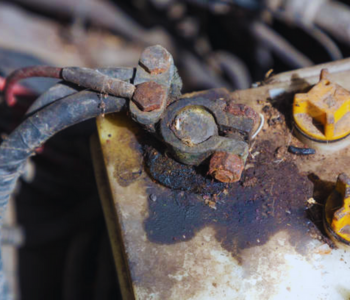
What Should You Never Use to Clean a Battery Terminal?
Use only the approved ways to clean batteries already in your kitchen, like vinegar, baking soda, lemon juice, or commercial battery cleaners, because these acidic cleaners can cause even more damage to the battery and the parts around it. Never use Clorox or other cleaners with bleach near a battery hookup.
- The toxic sodium hypochlorite is one of the things that Clorox is made of. If it gets on the metal parts of the battery wires, it could lead to corrosion or other problems.
- Clorox’s residue could make it hard for electricity to flow easily between the battery terminals and the cables. This could cause the electrical links to go bad and make the battery work poorly.
- Clorox and other cleaning products that contain bleach can be toxic to your health if they mix with battery acid or other chemicals. If you breathe in these gases, they can hurt you and make your skin and eyes itch.
Is Battery Corrosion Dangerous?
Batteries that are getting old can be dangerous. Sulfuric acid is a common cause of rust. It is very corrosive and can burn and irritate the skin badly. Battery acid is very dangerous if it gets into your mouth or eyes. When cleaning battery corrosion, following all safety rules, using protective gear, and utilizing well-ventilated areas are very important.
Will Vinegar Remove Car Battery Corrosion?
Vinegar is a great idea to get rid of rust on car batteries. Because it is acidic, it is much easier to get rid of rust. Before you try the other way, mix some water with vinegar or lemon juice. The corrosion should be gone after applying the solution, carefully brushing, rinsing, and drying the connections.
How to Stop Car Battery Corrosion?
When it comes to car battery rust, keep the following in mind:
- Ensure the battery is in the right place to avoid too much shaking.
- Batteries must be checked and maintained regularly to keep them clean and leak-free.
- Can’t emphasize much on how important it is to keep the area around the battery clean and free of dust, dirt, and the battery itself.
- After you clean the terminals, you should put petroleum jelly or a spray that protects battery wires over them. At the battery contacts, you could use dielectric grease to stop corrosion.
Causes of Car Battery Corrosion
- Corrosion can happen to car batteries for several reasons, including age-related wear and tear.
- Overcharging or not charging the battery enough.
- Extreme conditions due to a rise in temperature.
- Acid leaks out of the battery because it needs to be handled properly, like not having the terminals cleaned regularly.
What is the best way to clean car battery corrosion?
Corrosion on a car battery must be cleaned with the right chemicals and in the right way. Baking soda and water mixed is one of the most popular suggestions. First, separate the wires from the battery. Then, mix the two ingredients in a 1 to 1 ratio.
After you put the mixture on the damaged areas, use a brush or an old toothbrush to clean them gently. After giving the terminals a good rinse with clean water, the last step is to let them dry in the air. With this process, you can get the battery to work again by neutralizing the acid and removing the corrosion.
Is it safe to clean car battery corrosion?
Most of the time, it’s safe to clean corrosion off a car battery, but only if the right safety measures are taken. Wear glasses and gloves to protect your eyes and skin from corrosive chemicals. Use a well-ventilated area when working to reduce your exposure to fumes. Because battery acid can catch fire, don’t use open fires or smoke in the area. By following these, you can clean rust off of a battery without putting yourself in danger.
Can I use rubbing alcohol to clean battery corrosion?
Yes, You can make use of rubbing alcohol to get rid of corrosion on batteries, but it’s not much effective as other ways. Some of the rust may have been removed, but the hard-to-remove layers may still exist. Put some rubbing alcohol on a cloth or cotton swab and wipe the damaged areas gently. You must be careful around trash booze because it can easily catch fire.
Can you use hydrogen peroxide to clean battery corrosion?
Hydrogen peroxide works well to clean batteries that have rust on them. Its foaming action helps lift the rust and get rid of it. Disconnect the battery before putting hydrogen peroxide on the damaged parts. Let the peroxide do its damage to the rust as it bubbles. Then use a brush or toothbrush to get rid of what’s left. After using water to clean the battery connections for the last time, ensure they are completely dry.
Can Clorox clean battery corrosion?
Even though Clorox (chlorine bleach) is widely used for other things, it shouldn’t be used to clean worn-out batteries. Bleach with chlorine is corrosive, which could hurt the connections, especially between the battery and other pieces. Acid from a battery is acidic, and mixing it with bleach can make toxic fumes. Because of this, you shouldn’t use Clorox or any other cleaner that contains bleach to clean a corroded car battery.
Final Thoughts :
It’s important to keep a car battery clean and rust-free if you want it to work well and last a long time. In 2023, using the methods and directions in this amazing article to clean a corroded battery is simple and easy. Be sure to put safety first, use the right cleaners like vinegar or baking soda, and check and keep your car batteries regularly to avoid corrosion problems in the future.

More Related articles :
- Why Does My Car Battery Look Wet
- Car Battery Clicking While Charging
- Best Car Battery Terminal Cleaners
- What Happens When You Shake A Car Battery
- How Long Does Car Battery Last With The Radio On
- Is 13 Volts Good For A Car Battery
- How Long Does It Take To Change A Car Battery
- Does Driving Charge Your Car battery
- Car Battery Doesn’t Fit In A Tray
- How To Drain Car Battery
